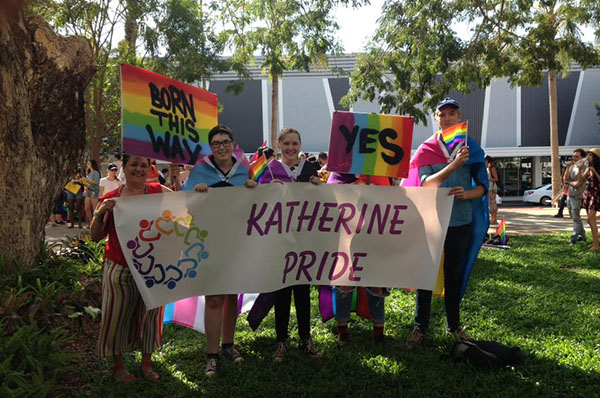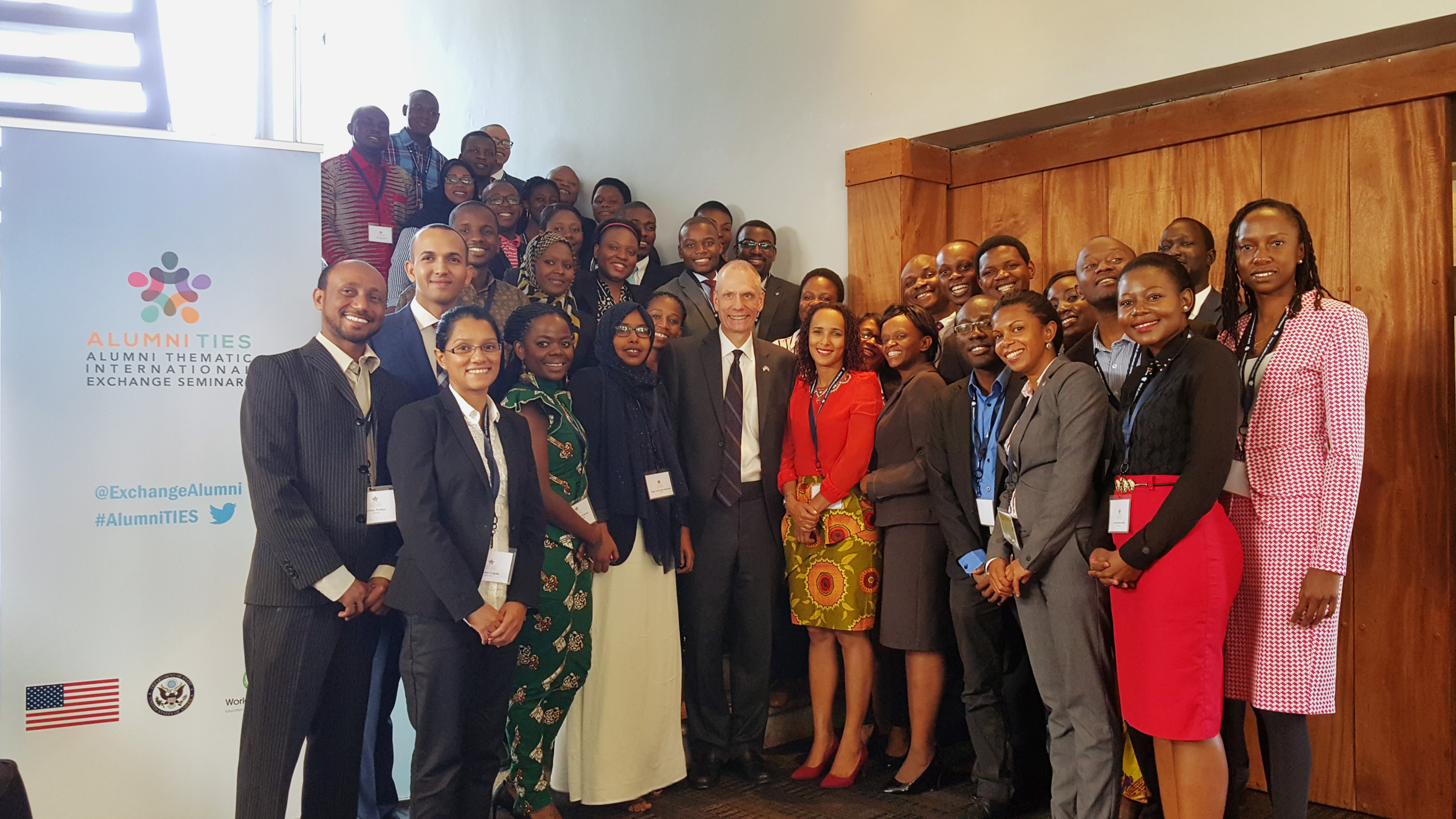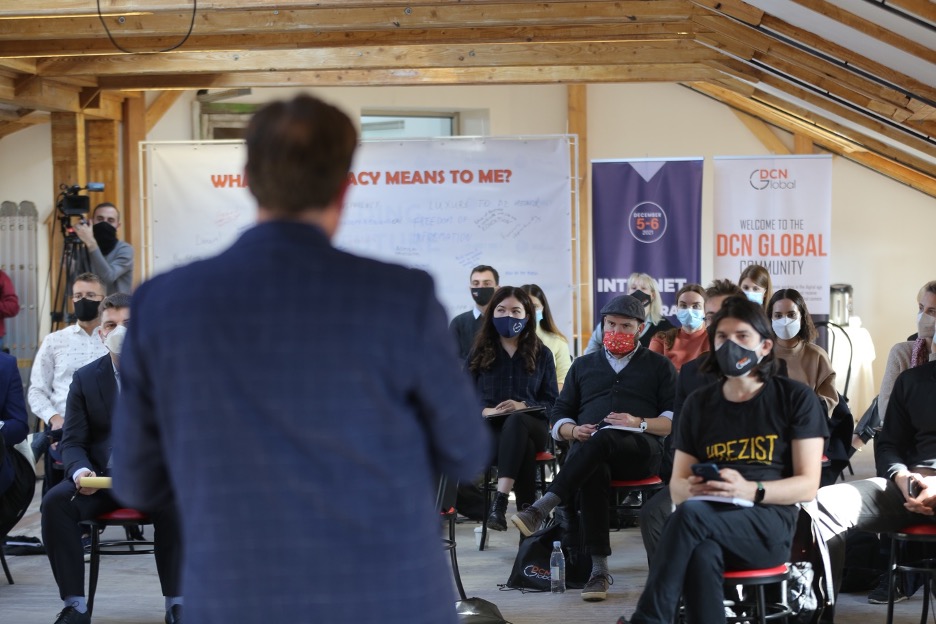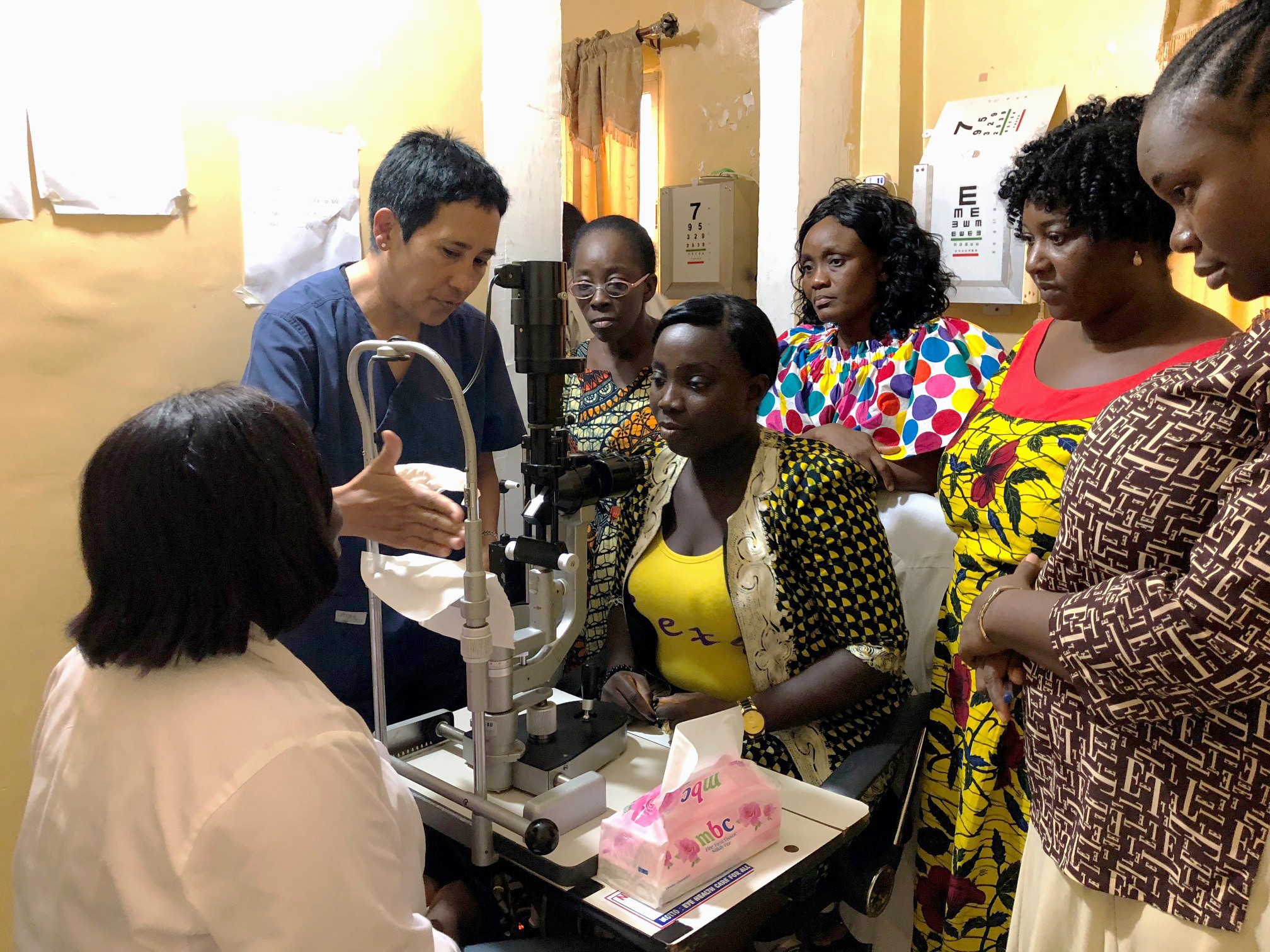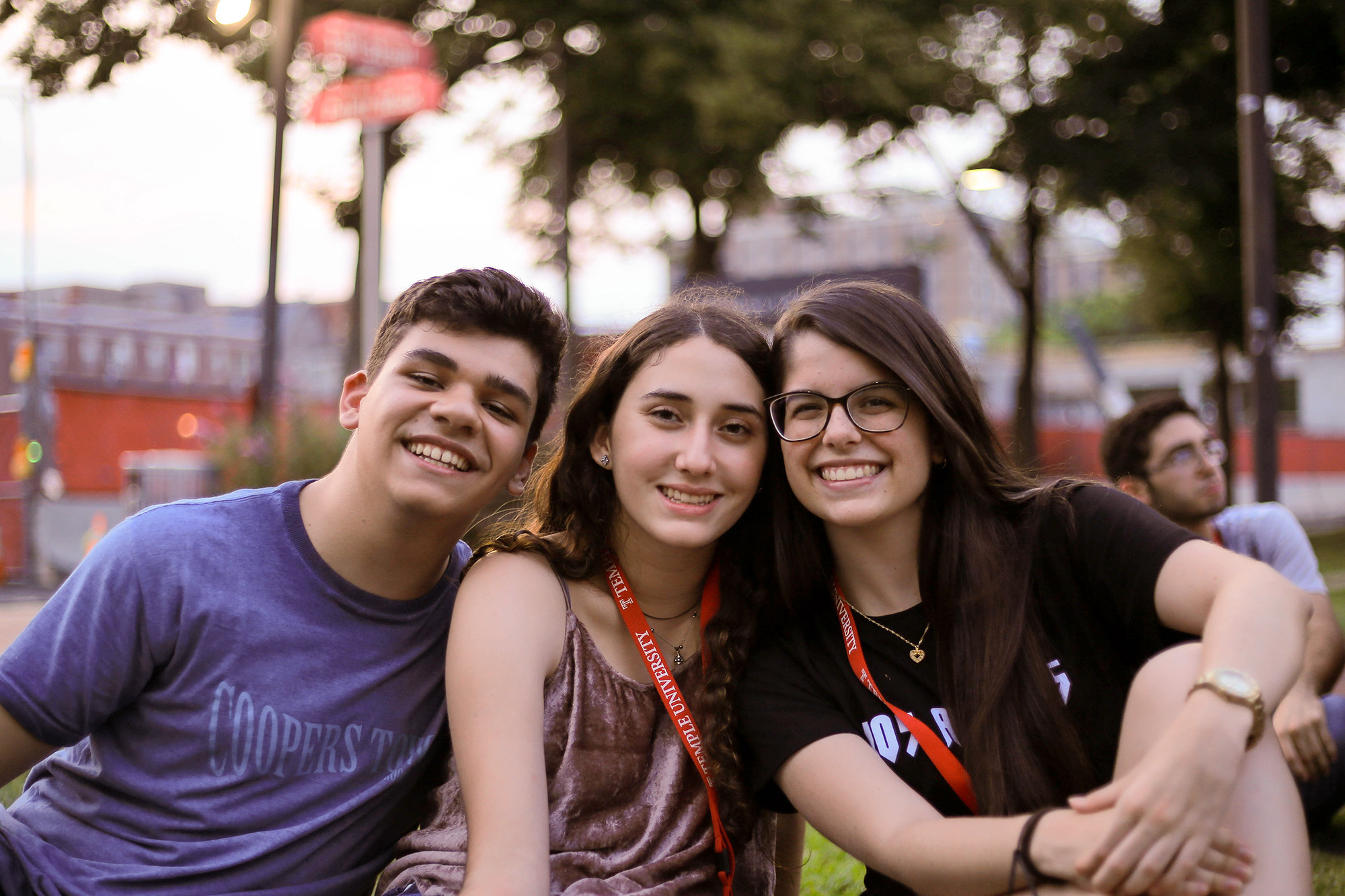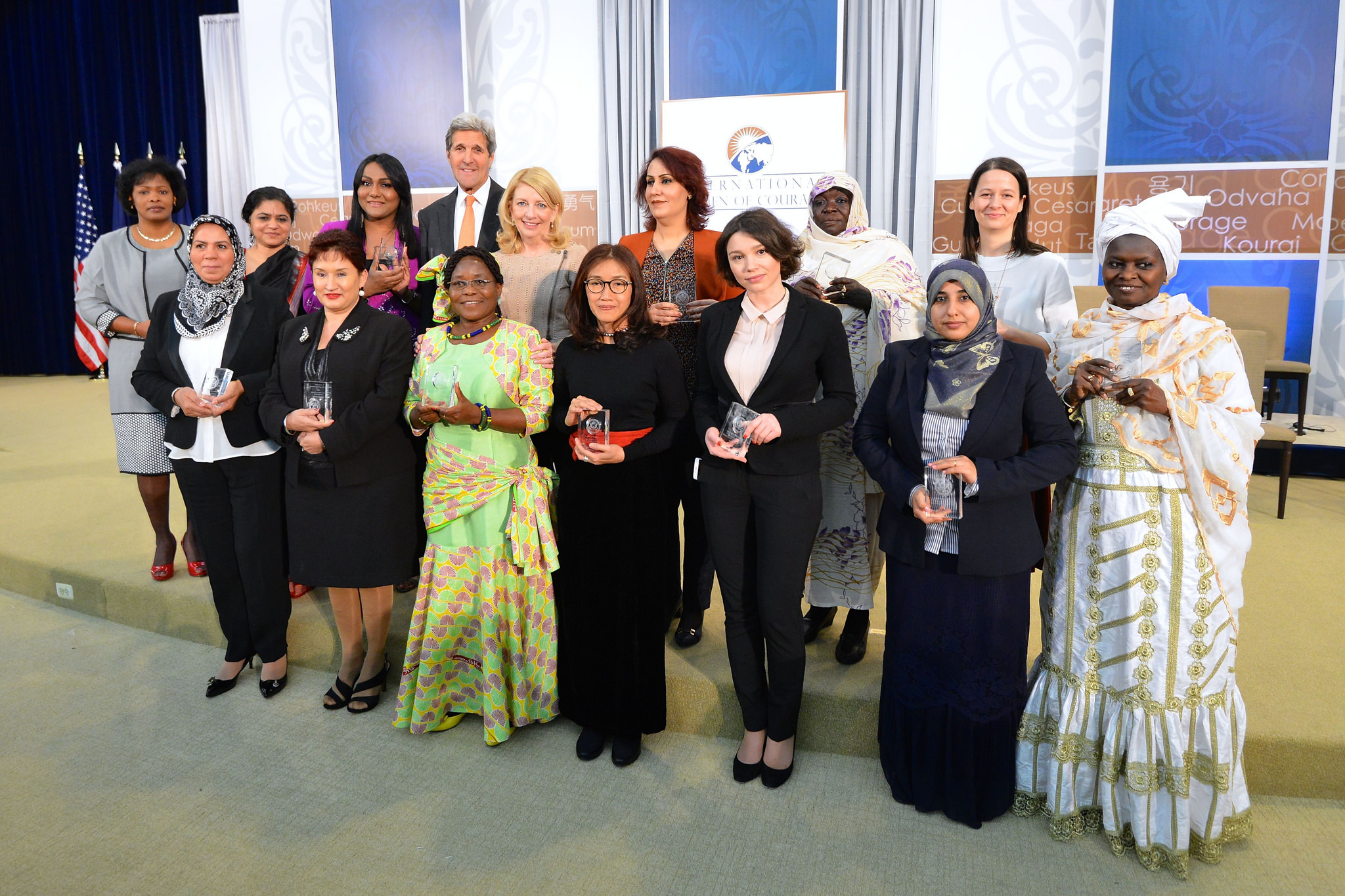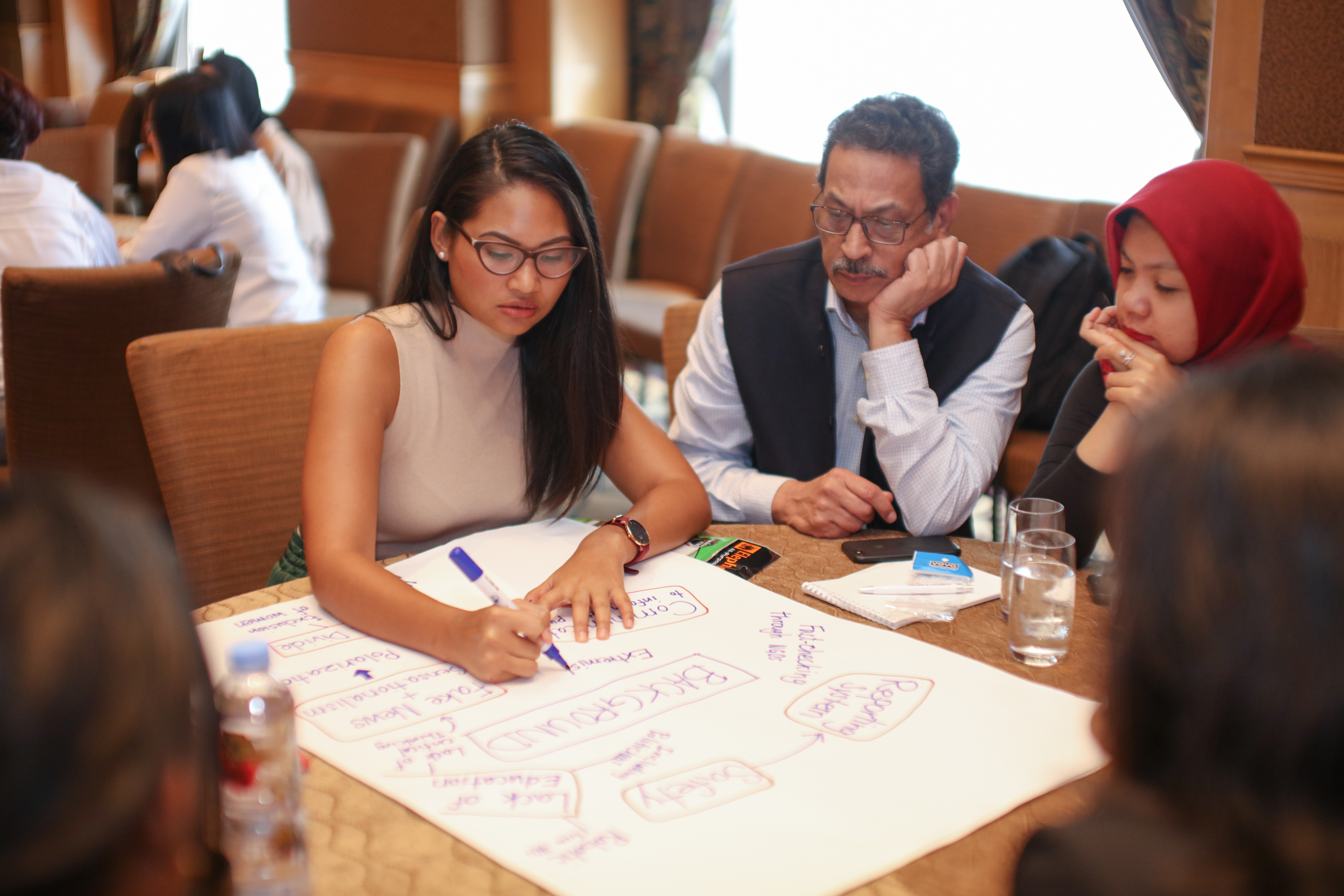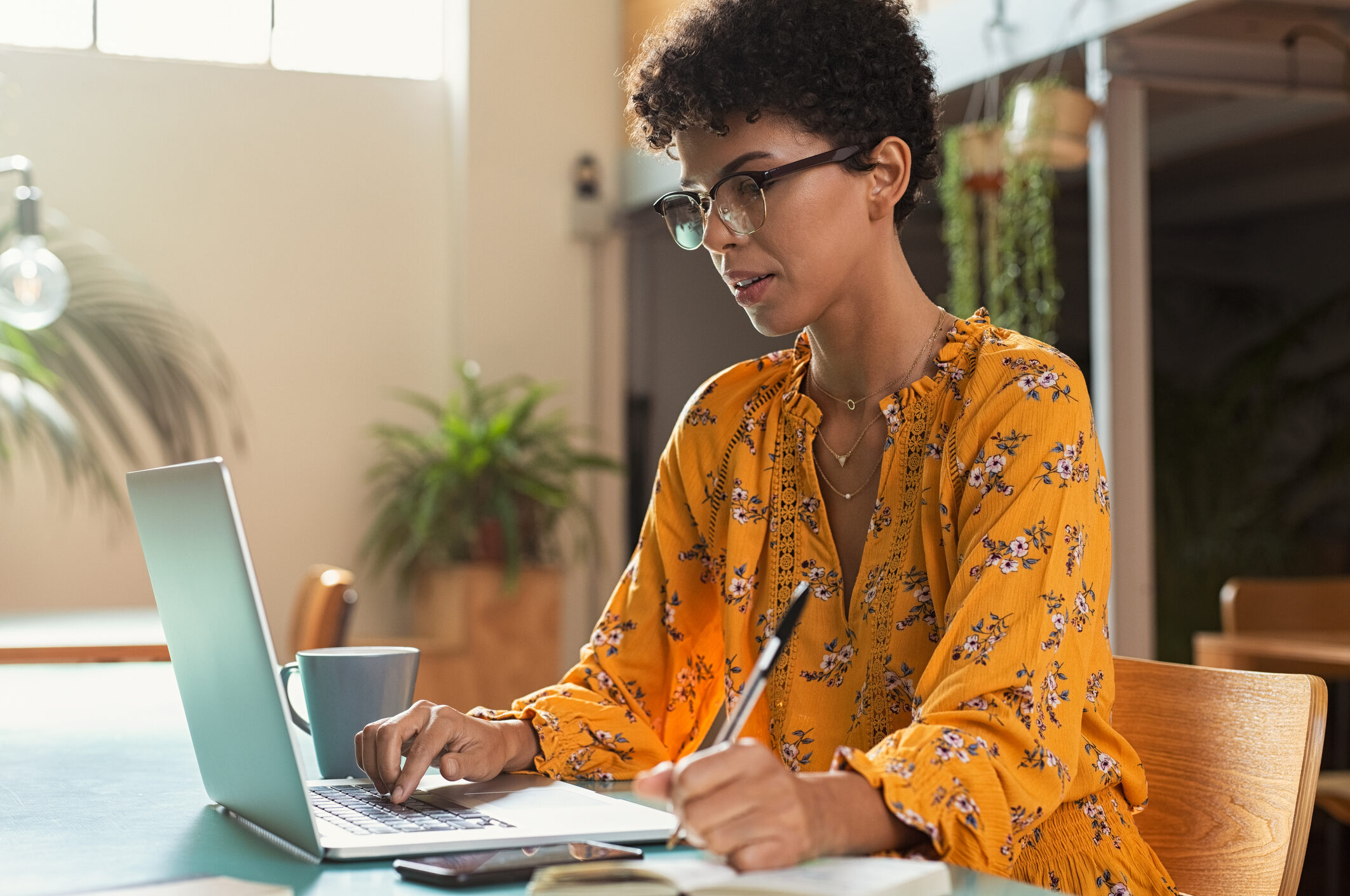-
What We Do
- WHERE WE WORK
-
About Us
 Welcome Message from Carol Jenkins
Welcome Message from Carol JenkinsFor more than 90 years, World Learning has equipped individuals and institutions to address the world’s most pressing problems. We believe that, working together with our partners, we can change this world for the better.
On my travels, I’ve had the opportunity to meet with many of those who have joined us in this mission. In Baghdad, we’ve trained more than 2,300 Iraqi youth who are already giving back at home. In London, our partners in the TAAP Initiative strongly believe that we are all responsible to practice inclusion. And in Vermont, our Experiment in International Living and School for International Training participants prove every day that they have the tools and the determination to change the world.
Please join us in our pursuit of a more peaceful and just world.
- Get Involved
Country: Australia
Meet an Australian Teen Who Transformed His Community’s LGBT Awareness
If you ask Phoebe Hooper to pinpoint when his life took off on a new trajectory — when he gained independence, developed a passion for travel, and, most importantly, discovered his own capacity to accomplish amazing things — he would say it was the three weeks he spent in the United States as part of an international youth exchange program.
In 2014, the 15-year-old Hooper traveled to the U.S. for the State Department-funded Youth Leadership Program (YLP) On Demand with Australia and New Zealand. The program, implemented by World Learning, brings together teens from various countries and regions to foster cross-cultural relationships and encourage them to become responsible citizens and community leaders.
Hooper didn’t really think of himself as a leader when he first applied to YLP On Demand. As a high school freshman in Katherine, a rural town in Australia, Hooper was quiet and didn’t much like being in the spotlight. But during YLP On Demand’s team-building activities and leadership workshops in Lake Tahoe, California; Portland, Oregon; and Washington, DC, Hooper began to see everything differently. “I learned that you didn’t have to be at the forefront of the idea [to be a leader],” he says. “You could be the one behind the scenes making the change.”
In the years since, Hooper founded a nonprofit called Keep Talking NT, which advocates for the LGBT community in Australia’s Northern Territory. Keep Talking NT organized its community’s first Pride celebration and developed a series of workshops designed to cultivate mutual understanding among local high school students.
A youth leadership exercise inspires an idea
The first seed was planted for what would eventually become Keep Talking NT toward the end of YLP On Demand. When they arrived in Washington, DC, the students were assigned to write speeches to present on the steps of the Lincoln Memorial — the very same steps where Dr. Martin Luther King, Jr. had delivered his legendary “I Have a Dream” speech.
At the time, the U.S. Supreme Court was just months away from legalizing same-sex marriage, and marriage equality was major topic of conversation across America. But in Australia, the movement had stalled. Hooper’s own community wasn’t particularly accepting or aware of its LGBT population. So, in a spoken word poem, Hooper articulated the struggles LGBT teens face, and issued a call to action, saying:
“My tears flow for those who know,
How it feels to fear opinions,
Of people unknowing,
Being afraid of showing,
Scared of exile,
Terrified of rejection,
Your vote is the next direction.”
Hooper understood those feelings well. Assigned female cisgender at birth, Hooper — who is now transitioning from female to male — knew he belonged in the LGBT community though he didn’t yet know that he was transgender as he delivered the speech. “I didn’t even know what the word meant at the time,” he says. “I was very confused about who I was.” So, most of the time, he just didn’t talk about it with people back home. But that would soon change.
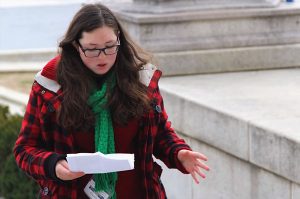
Newly passionate about travel thanks to YLP On Demand, Hooper spent the intervening years traveling, including a five-month youth exchange to Canada. During that time, he began to accept himself and came out as transgender to friends and family. Elsewhere, he noticed, gender identity was something people could talk about in school without being mocked or bullied. “It made me wonder why we couldn’t have the same thing in Katherine,” he says.
In early 2017, he returned to Australia, then applied for and earned a position on the Northern Territory Youth Roundtable, whose members advise the regional government on youth issues and launch community service projects. Searching for inspiration for his own project, Hooper thought back to that speech on the steps of the Lincoln Memorial.
Keep Talking NT launches
In the spring of that year, Hooper launched Keep Talking NT in hopes to promote conversations about gender identity in his community. As its first project, the nonprofit developed a series of Connectedness Workshops — held at Hooper’s high school — designed to help students discover their commonalities, learn about the LGBT community, and become allies. It was a success. In a post-workshop survey, the feeling of safety among students rose by 20 percent while the feeling of connectedness jumped by 40 percent.
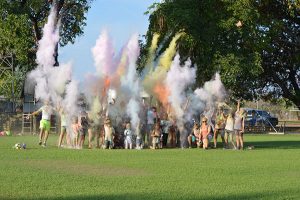
Pride was the next big event. Even though communities all over the world now celebrate the LGBT community with gay pride events, Katherine had never hosted one before. In fall 2017, Keep Talking NT organized a Rural Pride festival that included a color run, a market stall for LGBT awareness, and an outdoor film screening.
Katherine responded even better than Hooper had expected. Both his school leadership and local organizations supported Rural Pride with donations of venues and supplies, while dozens of people attended each of the events. Altogether, they raised more than $1,000 for Headspace, an organization that provides mental health support for Australian youth.
Nationwide, Australia has made progress on LGBT rights as well, legalizing same-sex marriage in December 2017. “It was a momentous day,” Hooper says. “Now we can stop asking the question, ‘Why not Australia?’ We can just say, ‘Hooray, we’ve done it.’”
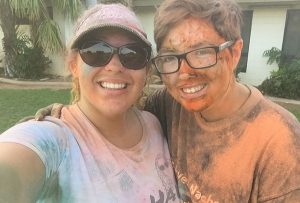
Hooper still has plenty to do, though. For this year’s Rural Pride, he’s planning a masquerade ball and a candlelight concert to memorialize the losses from HIV and AIDS. He’s also working on an online animated series telling the stories of the LGBT community. And the Northern Territory government is rolling out the Connectedness Workshops at high schools across the region later this year. Hooper also needs to finish his final year of high school — and has plans to enroll at a university in Melbourne this fall. “My motto is ‘Why not?’” he says. “Why not do everything you can?”
Hooper traces the origins of that philosophy to World Learning and YLP On Demand. “Without the YLP program I would have never had the confidence or drive to push the envelope and start something from the ground up in a town where it isn’t very accepted,” he recently wrote in an email to World Learning. “I wouldn’t be able to think about myself objectively as a leader and I would never have had the desire to go on and continue to explore the world and learn things that have pushed me to change what I think is wrong about my community.”
Alumni Thematic International Exchange Seminars
Participant Profile
Participants are alumni of U.S. government-sponsored exchange programs and vary in age and level of expertise, but all will be engaged in the seminar topic and highly motivated to create change in their communities.
Please consult the list of U.S. government-sponsored exchange programs below.
- U.S. citizen: https://exchanges.state.gov/us
- Non-U.S. citizen: https://exchanges.state.gov/non-us
Participant Selection
Alumni TIES participants who are not U.S. citizens are nominated by the U.S. Embassies or Consulates in their countries. Please contact the U.S. Embassy or Consulate in your country to learn how you can participate in Alumni TIES. Potential Alumni TIES participants who are living in the United States can apply for specific seminars managed by World Learning. The web link to the online application will be distributed widely by the Office of Alumni Affairs of the Bureau of Educational and Cultural Affairs.
All participants for Alumni TIES seminars are selected by the U.S. Department of State.
Program Design
Alumni TIES seminars take place in six world regions and the U.S.; each seminar is three to four days for small groups of alumni. The seminars include speakers, capacity development trainings, and alumni networking activities. Through the small grants initiative, alumni have the opportunity to take action and make a positive difference in their communities.
Learn More
Watch more videos about the Alumni TIES program.
Read stories from past participants about their experiences at the seminars or with their small grant projects on the Alumni TIES blog.
For information on programs for U.S. government-sponsored exchange program alumni visit the International Exchange Alumni website.
Alumni TIES is sponsored by the U.S. Department of State with funding provided by the U.S. Government and supported in its implementation by World Learning, in partnership with the Office of Alumni Affairs of the Bureau of Educational and Cultural Affairs (ECA).
Digital Communication Network
Examples of Past Digital Communication Network Projects
- Internet vs. Democracy Forum
- Roaring 20s #Digital Forum
- Combatting Disinformation Training Program
- Digital and Media Literacy for NGOs Training Program
- Tolerance and Coexistence 2.0 Forum
- Montenegro Digital Influencers Hub
- Humor and Games for Social Good Forum
Fulbright Specialist Program
What?
Link U.S. Experts and International Institutions
A program of the U.S. Department of State, Bureau of Educational and Cultural Affairs, the Fulbright Specialist Program is a unique opportunity for U.S. academics and established professionals to engage in two- to six-week consultancies at host institutions across the globe. Host institutions, including universities, non-profits, and other organizations, develop and submit projects for approval by the U.S. Embassy or Fulbright Commission in their country in wide-ranging academic and professional fields that build capacity and promote long-lasting linkages between individuals and institutions in the U.S. and abroad.
Why?
Address Priorities and Build Institutional Capacity at Institutions Around the World
An important companion to the traditional Fulbright Scholar Program, the Fulbright Specialist Program differs by providing short-term exchange experiences that tackle discrete, sometimes rapid response, projects. The Fulbright Specialist Program encourages participation of both university faculty and highly experienced non-academics, including legal experts, business professionals, public health practitioners, scientists, IT professionals, artists, and journalists. The program is a mutually beneficial opportunity for the Specialist who may not be available to leave their position for an extended period of time and the host institution which needs an experienced partner to jointly tackle a problem or examine an issue on a short-term basis.
How?
Become a Fulbright Specialist: Apply to Join the Roster
Fulbright Specialists are a diverse group of highly experienced, well-established faculty members and professionals who represent a wide variety of academic disciplines and professions. In order to be eligible to serve as a Fulbright Specialist, candidates must have significant experience in their respective professional field and be a U.S. citizen at time of application. Eligible disciplines and professional fields supported by the Fulbright Specialist Program are listed below.
- Agriculture
- American Studies
- Anthropology
- Archeology
- Biology Education
- Business Administration
- Chemistry Education
- Communications and Journalism
- Computer Science and Information Technology
- Economics
- Education
- Engineering Education
- Environmental Science
- Law
- Library Science
- Math Education
- Peace and Conflict Resolution Studies
- Physics Education
- Political Science
- Public Administration
- Public/Global Health
- Social Work
- Sociology
- Urban Planning
Interested candidates can find more information about the Fulbright Specialist Program and apply to serve as a Specialist at fulbrightspecialist.worldlearning.org. Candidates who meet all eligibility requirements will have their full applications reviewed by a panel of their professional peers. Candidates who are approved by the peer review panels will then join the Fulbright Specialist Roster. Individuals remain on the Specialist Roster for a three-year term and are eligible to be matched with a host institution’s project abroad during that tenure.
The following costs are covered for those Fulbright Specialists who are matched to a project: international and domestic airfare, ground transportation, visa fees, lodging, meals, and incidentals. A daily honorarium is also provided.
Become a Host: Bring a Fulbright Specialist to Your Institution
The Fulbright Specialist Program allows universities, cultural centers, non-governmental organizations, and other institutions abroad to host a leading U.S. academic or professional to work on diverse, short-term collaborative projects where the Specialist conducts activities which may include, but are not limited to:
- Delivering a seminar or workshop
- Consulting on faculty or workforce development
- Developing academic or training curricula and materials
- Lecturing at the graduate or undergraduate level
- Conducting needs assessments or evaluations for a program or institution
Institutions interested in hosting a Fulbright Specialist should contact their local Fulbright Commission or U.S. Embassy for country-specific requirements and deadlines.
Contact information for all participating countries is available on the fulbrightspecialist.worldlearning.org website.
For more information or questions about the Fulbright Specialist Program, please email [email protected].
The Fulbright Specialist Program is a program of the U.S. Department of State with funding provided by the U.S. government and administered by World Learning.
EducationUSA Academy
For further information: [email protected]
“Through EducationUSA Academy, I made new friends from all over the world, I learned about the American education system and requirements for getting accepted to an American university, and I visited one of the most interesting places in the United States in a friendly and helpful group.” -2017 EducationUSA Academy participant
Student Eligibility
Participants must:
- Be students (currently enrolled or recently graduated), ages 15-18 at the time of the summer program;
- Have at least three years of middle to high school English language study (language requirements may vary slightly by institution);
- Be mature and self-disciplined, with a commitment to active participation in the Academy and its programming;
- Aspire to pursue a portion of their higher education in the U.S.; and
- Have sufficient personal funds to cover program fees and international airfare.
More information is available from your local EducationUSA adviser. To find your local EducationUSA advising center, please visit the EducationUSA website.
Follow the program on Facebook, Twitter, and Instagram.
EducationUSA Academy is sponsored by the U.S. Department of State with funding provided by the U.S. Government and administered by World Learning.
International Visitor Leadership Program
End of Year Report
Chosen by U.S. embassies worldwide to participate, distinguished professionals include:
- parliamentarians
- government officials
- entrepreneurs
- NGO leaders
- journalists
- academics
- arts administrators
- mid-career professionals
Programs focus on policy issues in areas such as:
- government
- international security
- foreign policy
- entrepreneurship
- economics and trade
- media
- women’s leadership
- education
- public health
- arts
- agriculture
- disability rights and inclusion
World Learning staff members design national itineraries, arrange logistics, set up meetings in Washington, DC, and coordinate the collaboration of U.S. Department of State program officers, interpreters and International Visitor Liaisons, and more than 85 community-based member organizations from the Global Ties U.S. Network who arrange local programs nationwide.
Participants
Most participants are mid-career professionals and emerging leaders, and for many, this is their first visit to the U.S. Groups are of varying sizes, from single visitors to groups of 25 or more. World Learning program staff work closely with their State Department counterparts to design a program customized to the project objectives and the visitors’ interests.
Participant Selection
IVLP candidates are selected solely by U.S. embassy personnel in each country. There is no application form. World Learning is a private sector partner of the U.S. Department of State; our role is limited to designing programs for participants once they arrive in the U.S. For further information regarding the program, please consult the U.S. Department of State’s website.
Program Design
A typical project includes up to a week of meetings in Washington, DC, to provide an orientation and overview of the theme and to introduce visitors to federal officials and agencies, national organizations, academics and think tanks, nonprofits and NGOs, and professionals in their specific field of interest. All projects include a briefing on the US federal system of government. Meetings may include panel discussions, site visits, workshops, individual interlocutors, job shadowing, or service opportunities. Visitors typically travel to an additional three or four cities in geographically diverse regions of the country; the itinerary may include a state capital and a small town to provide first-hand exposure to the great diversity that exists in the U.S. Also included in the program design are hospitality dinners, school visits, community service activities, and cultural events such as rodeos, state fairs, festivals, visits to national parks, or events that highlight some unique aspect of the region visited.
Participant Experience
“My recent experience in the IVLP program is so far the deepest ever for me to see and understand the full picture of what America as a country is like. I strongly believe this program will have a very long-term impact on my views about America and the world and to some extent it has already helped me to understand many long-time questions.” – Journalist from China
The International Visitor Leadership Program is sponsored by the U.S. Department of State with funding provided by the U.S. Government and administered by World Learning.
Leaders Lead On-Demand Program
Examples of past leaders Lead On-Demand Projects:
- Vietnam Legal Aid
- Refugee Integration and Resettlement in Central and Eastern Europe
- Sports Leadership Program for Colombia
- Mongolia Disability Rights Legislation and Implementation
- Promoting Open Educational Resources: Middle East and North Africa
- Tourism and Development in Serbia and Kosovo
- Religious Freedom and Interfaith Dialogue for Myanmar, India, Indonesia, Malaysia, Sri Lanka, and Thailand
- Emerging Leaders Exchange for Northern Ireland and the Republic of Ireland
- Environmental Advocacy for Mongolia
- Getting Connected Program for the South Pacific
- Civic Engagement Program for Moldova
- Disinformation and Fact Checking in Kenya




